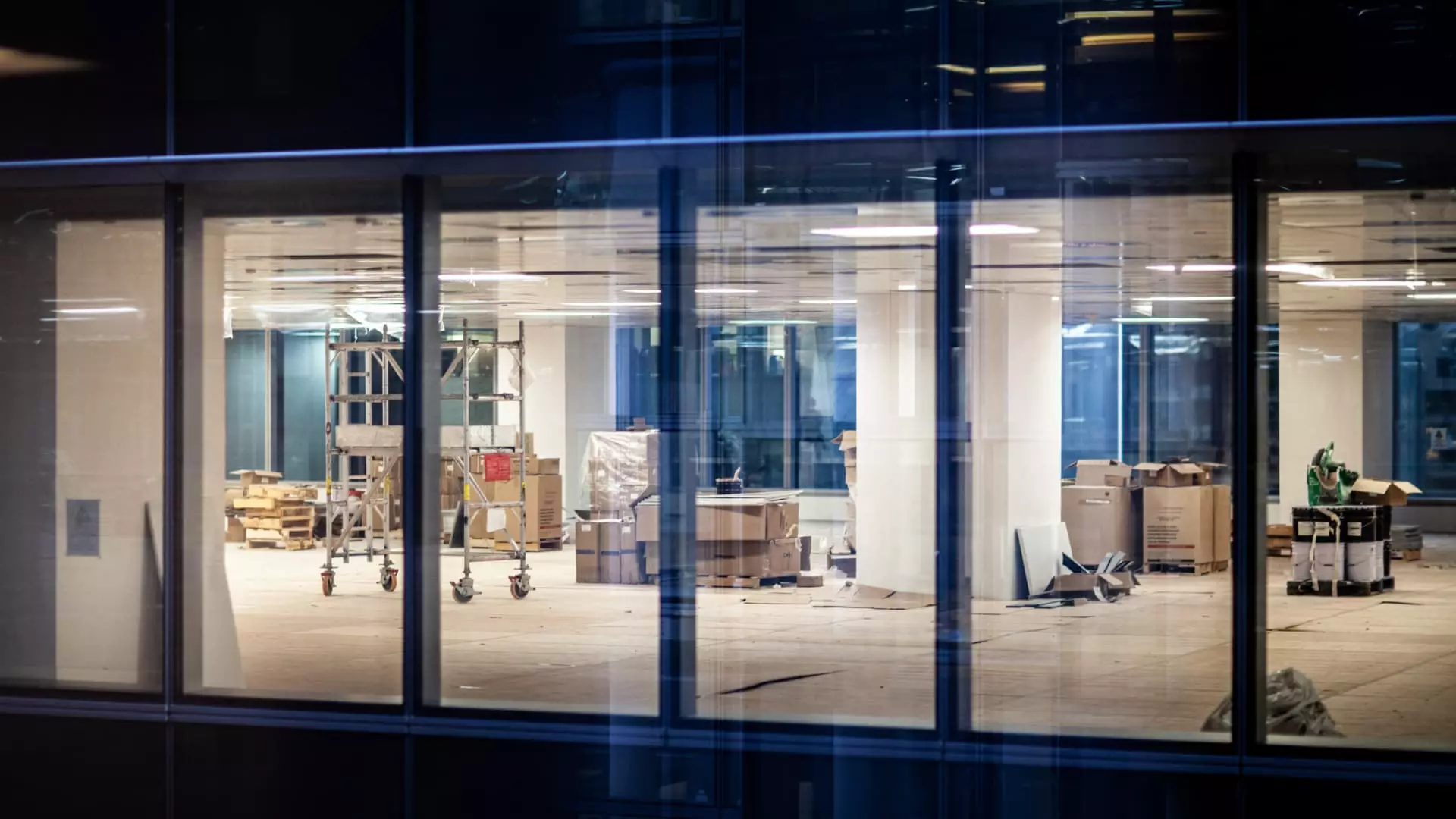Recent data reveals a troubling trend in the U.S. office real estate sector that cannot be ignored. After a period of tentative recovery, demand for office space sharply declined in April, marking a significant turning point that might signal more profound economic vulnerabilities. The sharp contraction—17 of 19 major markets experiencing demand drops—suggests that previous optimism was perhaps misplaced, and that external factors are exerting a troubling influence on the sector. This decline isn’t just a blip; it’s a symptom of increasing uncertainty and instability across economic and geopolitical spheres.
What’s especially alarming is the connection between this downturn and recent geopolitical tensions, coupled with protectionist trade policies like tariffs. These external shocks, combined with domestic political uncertainty, are creating an environment where businesses hesitate to commit to long-term office leases. The immediate reaction of tenants pulling back and reducing square footage sought indicates a shift from confidence to caution—an outcome that is rarely a positive sign for broader economic health.
Protectionism and Policy Uncertainty: The Roots of the Collapse
Tariffs, once seen primarily as a bargaining chip in trade negotiations, now appear to be weaponized tools with tangible impacts on the housing and commercial real estate markets. The re-introduction of tariffs under the current administration, despite a fleeting recovery in equity markets, appears to have instilled hesitation among businesses eyeing expansion or relocation. The reflexive retreat in office leasing demand highlights an underlying anxiety about future economic stability, with many companies opting to sit on the sidelines rather than commit to new leases amidst mounting uncertainty.
This trend raises the question: are tariffs, often promoted as protective measures for the domestic economy, actually destabilizing it? The data suggests so. When corporations see the cost of goods and material supplies increasing due to tariffs, they become more cautious about investing in expansion—particularly in capital-intensive sectors like office real estate. The ripple effects are concerning; if demand continues to shrink, the supply chain disruptions and decreased investment could drag the broader economy into a prolonged slowdown.
Geopolitical and Domestic Challenges Amplify the Risk
Adding to the economic headwinds are escalating geopolitical tensions that threaten to further destabilize market confidence. The Iran-Israel conflict, ongoing global tensions, and the uncertain future of trade policy create a fog of unpredictability that business leaders understandably view with trepidation. Domestic issues—such as the recent Congressional budget debates—do little to assuage fears that the political climate is unstable and incoherent in guiding economic policy.
Which is to say, the current environment is ripe for a potential economic downturn that could ripple beyond the office market into wider financial stability. When investors see external shocks and policy ambiguity, they tend to withdraw or hold back investments, which can cause a vicious cycle of declining demand, falling property values, and reduced capital flows. The fact that more square footage is expected to be removed from the market than added indicates a structural shift that could have long-lasting implications.
The Future Looks Uncertain—And Perhaps Grim
If history teaches us anything, prolonged declines in office demand often foreshadow deeper economic discomfort. While the market may have experienced periodic recoveries in the past, the current trajectory—marked by persistent contraction—suggests something more concerning is at play. The broad withdrawal from office space reflects a transition from a growth-driven economy to one beset by caution and hesitation, fueled by tariffs, geopolitical instability, and policy uncertainty.
This scenario underscores the importance of cautious optimism rooted in realpolitik. As a society, we must recognize that external shocks—be they tariffs or geopolitical conflicts—do not merely impact markets in isolation; they undermine the economic foundation and shake confidence in long-term stability. The present decline is not just a sector-specific issue but a bellwether warning of potential instability in the wider economy, demanding serious attention and strategic thinking if we are to avert a more damaging downturn.

